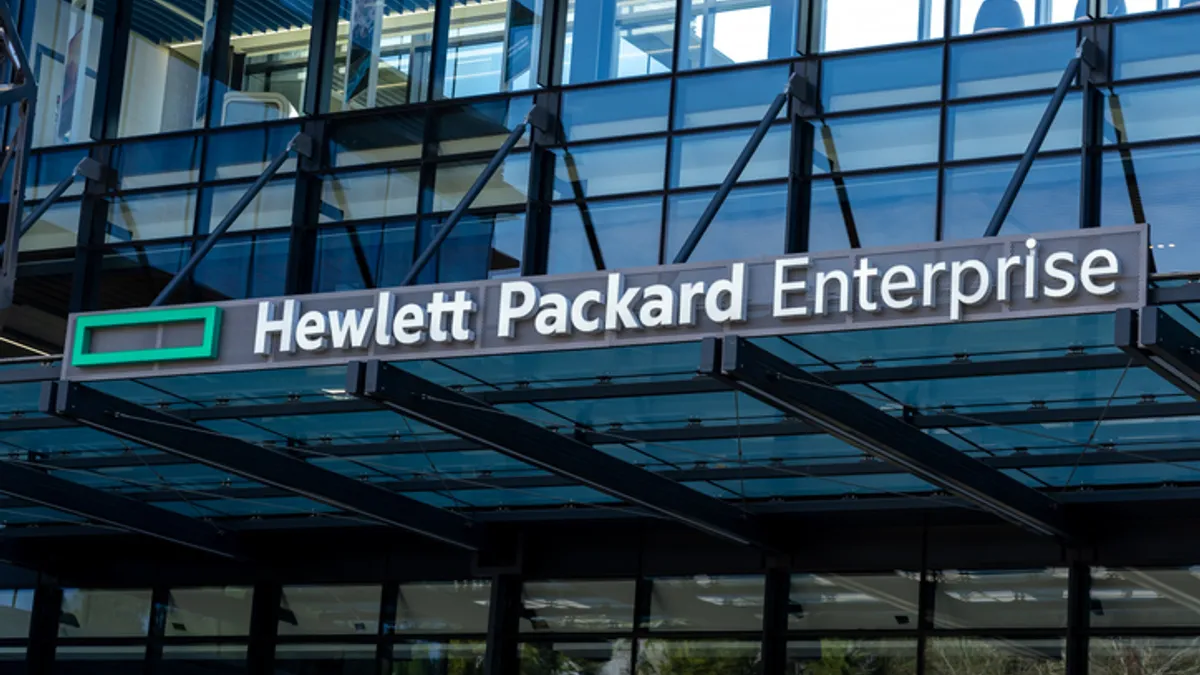The Department of Justice sued in federal district court Thursday to stop Hewlett Packard Enterprise from acquiring Juniper Networks on the grounds it would leave 70% of the enterprise wireless local area network market controlled by just two companies.
“The threat this merger poses is not theoretical,” Acting Assistant Attorney General Omeed Assefi of the Justice Department's Antitrust Division said in a statement. “This proposed merger would significantly reduce competition and weaken innovation, resulting in large segments of the American economy paying more for less from wireless technology providers.”
The Biden administration opened an investigation into the $14 billion merger after it was announced by the two companies a year ago. The companies were hoping to get the administration to okay the deal, possibly with changes, before the Trump administration took over but that didn’t happen, and any hope the companies had of the Trump administration reversing course was dashed by yesterday’s action.
“We are disappointed in its decision to file a suit,” the two companies said in a joint statement.
Competition watchdogs in the U.K. and European Union, among others, have approved the deal, making the U.S. an outlier, the companies said.
“All other major antitrust regulators [say] this transaction brings together two complementary networking offerings and will create a networking player with the scope and scale to more effectively compete with global incumbents,” the companies said.
Central to DOJ’s argument is the nature of the enterprise WLAN market, in which only three companies effectively compete in the U.S.: HPE, Juniper and Cisco Systems.
DOJ says smaller companies don’t have the resources to compete for enterprise clients — big companies, universities, medical centers and the like — and instead compete for the business of entities that don’t need hundreds or thousands of wireless access points or the software to manage them.
With the market only having these three companies, a combination between HPE and Juniper would leave just two, with Cisco having the biggest share and the combined company having much of the rest.
“The acquisition, if consummated, would result in two companies … controlling well over 70 percent of the U.S. market and eliminate fierce head-to-head competition,” DOJ says in the complaint.
It’s because of their fierce competition that HPE has been compelled to innovate and discount its prices to win or keep customers. “Defendants’ merger … would eliminate head-to-head competition that has lowered prices and driven investment in network management software, and it would decrease pressure on HPE to discount and innovate in the future,” the complaint says.
In their statement, HPE and Juniper say DOJ is misrepresenting the market.
“DOJ’s claim that the WLAN market is composed of three primary players is substantially disconnected from market realities,” the companies say. “As customers shift to AI and cloud-driven business strategies for secure, unified technology solutions to protect their data, barriers to entry have decreased and expansion and competition for WLAN has intensified.”
The companies call WLAN “an extremely competitive market with a broad set of players, all of whom are fighting for business and winning bids in competitive RFP processes.”
Fortinet, Arista, Nile, Meter and Extreme Networks are some of the smaller companies in the WLAN market.
On the whole, network specialists favor the merger in the belief a combined HPE-Juniper will provide a needed counterweight to Cisco.
“The DOJ missed the boat here,” Patrick Shelley, chief technology officer at network services company PKA Technologies, said in a CRN report. “If HPE is able to acquire Juniper Networks, it would drive more innovation and force Cisco to stay up to date and current with regard to AI enabled networking. I believe the HPE-Juniper deal would actually have created more competition in the networking market.”
HPE and Juniper said they intend to defend their merger in court.











